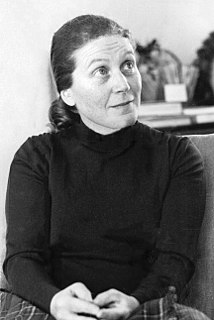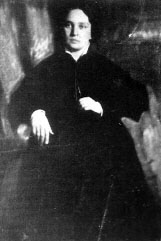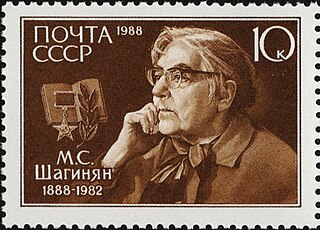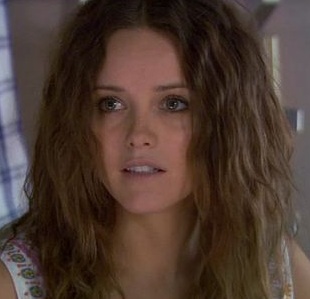 First edition | |
| Author | Helen Dunmore |
|---|---|
| Publisher | Viking Books |
Publication date | 2003 |
| Pages | 309 |
| ISBN | 0-670-91449-5 |
Mourning Ruby is the eighth novel by Helen Dunmore. [1]
 First edition | |
| Author | Helen Dunmore |
|---|---|
| Publisher | Viking Books |
Publication date | 2003 |
| Pages | 309 |
| ISBN | 0-670-91449-5 |
Mourning Ruby is the eighth novel by Helen Dunmore. [1]
Rebecca was abandoned by her mother in a shoebox in the backyard of an Italian restaurant when she was two years old. She is adopted by foster parents and thirty years later marries Adam, a consultant neonatologist dealing with premature babies. She gives birth to Ruby and starts a new life for herself and her small family. But a tragedy suddenly upsets the calm order of her life and changes its course forever. The novel traces the harrowing life of Rebecca with several interesting temporal juxtapositions and flashbacks that add to its complexity.
Prologue
The story opens with Rebecca and Ruby walking along the coast road from St Just to Zennor in Cornwall. This is during the time of a visit to Cornwall with Adam to visit his relative’s grave.
Part One – Shoebox Story
Rebecca recounts the discovery of herself as a foundling by Lucia, after she is abandoned by her young mother outside an Italian restaurant. This is at a time when she is working for Mr Damiano, a mysterious ex-circus owner who has set up a chain of boutique hotels that Rebecca helps to manage. On a flight back to England, one of the plane’s engines fails and it is forced to return to New York. It is whilst standing on the tarmac that Rebecca decides to hand in her notice, having lost all zest for her work. Rebecca’s story goes back to the time when she was sharing a flat with Joe, an intellectual who is writing a book about Nadezhda Alliluyeva, the thirty-one-year-old wife of Stalin who committed suicide in 1932. He befriends Adam through a shared interest in chess and he and Rebecca fall in love and then marry. Joe decides to move to Moscow to further his research and lives with Olya, and Rebecca and Adam decide to visit him with Ruby. He tells them about Joseph Stalin’s character and the wave of fear that gripped Russia during his dictatorship. On their return to England, they decide to visit Adam’s grandmother’s grave at Barnoon Cemetery in Cornwall and Rebecca is happy that Ruby will have ancestors that she herself can never have.
It is on their return to London on a warm August evening that tragedy strikes when Ruby is run down by a motorist. Rebecca cannot reconcile herself to her daughter’s loss and the intensity of her grief leads to their eventual separation. It is at this time that Rebecca’s shattered life is restored through her work for Mr Damiano, who tells her his life story as the son of poor trapeze artists. Joe, meanwhile, is working on his second novel – about the time of Stalin’s retreat to his dacha when Hitler invaded Russia. After talking to an Afghan war veteran, he decides to abandon the task and goes to Vancouver Island to write a novel. Rebecca leaves London and, on a visit to St Ives, starts working as a waitress in a local café. Here, she is visited by Joe who gives her a copy of his story.
Part Two – Boomdiara
This part is a narrative of Joe’s novel which describes the life of Florence, who works in Madame Blanche’s brothel to support her young daughter, Claire. It is here that she meets Will, a World War One air force pilot, with whom she falls in love. Joe writes to Rebecca that Florence’s character is based in part on her own.
Part Three – Flight
In this part the stories of Rebecca and Adam and Florence and Will become intertwined. Adam visits Rebecca in her boarding house and they become reunited and return to Ruby who is buried in the same grave as her great grandmother. Will’s plane is shot up in a fire fight with a German Albatros and he has to cut his engine to prevent his plane going down as a flamer.
In the novel, Joe is fascinated by the Russian poet Osip Mandelstam and his relationship with Stalin. He is one of Dunmore's favorite poets and is cited as defining poetry as "an aeroplane in full flight giving birth to another aeroplane". On 2 August 1938, Mandelstam was sentenced to five years in correction camps. The official cause of his death in a camp is an unspecified illness. As the author herself says about Russia: "I didn't choose Russia but Russia chose me. I had been fascinated from an early age by the culture, the language, the literature and the history to the place."
And about her novel: "Mourning Ruby is not a flat landscape: it is more like a box with pictures painted on every face. And each face is also a door which opens, I hope, to take the reader deep into the book."

Boris Leonidovich Pasternak was a Russian poet, novelist, and literary translator. Composed in 1917, Pasternak's first book of poems, My Sister, Life, was published in Berlin in 1922 and soon became an important collection in the Russian language. Pasternak's translations of stage plays by Goethe, Schiller, Calderón de la Barca and Shakespeare remain very popular with Russian audiences.

Nikolai Ivanovich Bukharin was a Bolshevik revolutionary, Soviet politician, Marxist philosopher and economist and prolific author on revolutionary theory.

Osip Emilyevich Mandelstam was a Russian and Soviet poet. He was one of the foremost members of the Acmeist school.

East of Eden is a novel by American author and Nobel Prize winner John Steinbeck. Published in September 1952, the work is regarded by many to be Steinbeck's most ambitious novel and by Steinbeck himself to be his magnum opus. Steinbeck stated about East of Eden: "It has everything in it I have been able to learn about my craft or profession in all these years," and later said: "I think everything else I have written has been, in a sense, practice for this." The novel was originally addressed to Steinbeck's young sons, Thom and John. Steinbeck wanted to describe the Salinas Valley for them in detail: the sights, sounds, smells and colors.

Dame Cicily Isabel Fairfield, known as Rebecca West, or Dame Rebecca West, was a British author, journalist, literary critic, and travel writer. An author who wrote in many genres, West reviewed books for The Times, the New York Herald Tribune, The Sunday Telegraph, and The New Republic, and she was a correspondent for The Bookman. Her major works include Black Lamb and Grey Falcon (1941), on the history and culture of Yugoslavia; A Train of Powder (1955), her coverage of the Nuremberg trials, published originally in The New Yorker; The Meaning of Treason, later The New Meaning of Treason (1964), a study of the trial of the British fascist William Joyce and others; The Return of the Soldier (1918), a modernist World War I novel; and the "Aubrey trilogy" of autobiographical novels, The Fountain Overflows (1956), This Real Night, and Cousin Rosamund (1985). Time called her "indisputably the world's number one woman writer" in 1947. She was made CBE in 1949, and DBE in 1959; in each case, the citation reads: "writer and literary critic". She took the pseudonym "Rebecca West" from the rebellious young heroine in Rosmersholm by Henrik Ibsen. She was a recipient of the Benson Medal.

Svetlana Iosifovna Alliluyeva, later known as Lana Peters, was the youngest child and only daughter of Soviet leader Joseph Stalin and his second wife Nadezhda Alliluyeva. In 1967, she caused an international furore when she defected to the United States and, in 1978, became a naturalized citizen. From 1984 to 1986, she briefly returned to the Soviet Union and had her Soviet citizenship reinstated. Until her death in 2011, she was Stalin's last surviving child.

Nadezhda Yakovlevna Mandelstam was a Russian Jewish writer and educator, and the wife of the poet Osip Mandelstam who died in 1938 in a transit camp to the gulag of Siberia. She wrote two memoirs about their lives together and the repressive Stalinist regime: Hope Against Hope (1970) and Hope Abandoned (1974), both first published in the West in English, translated by Max Hayward.

Back When We Were Grownups is a 2001 novel written by Anne Tyler in memory of her husband, who died in 1997.

My Cousin Rachel is a 1952 American mystery romance film directed by Henry Koster and starring Olivia de Havilland, Richard Burton, Audrey Dalton, Ronald Squire, George Dolenz and John Sutton. The film is based on the 1951 novel of the same name by Daphne du Maurier.

Maria Veniaminovna Yudina was a Soviet pianist.

The Body in the Library is a work of detective fiction by Agatha Christie and first published in the US by Dodd, Mead and Company in February 1942 and in UK by the Collins Crime Club in May of the same year. The US edition retailed at $2.00 and the UK edition at seven shillings and sixpence (7/6). The novel features her fictional amateur detective, Miss Marple.

If Tomorrow Comes is a 1985 crime fiction novel by American author Sidney Sheldon. It is a story portraying an ordinary woman who is framed by the Mafia, her subsequent quest for vengeance towards them and her later life as a con artist. The novel was adapted into a three-part TV miniseries with the same name in 1986, starring Madolyn Smith and Tom Berenger.

Cancer Ward is a semi-autobiographical novel by Nobel Prize-winning Russian author Aleksandr Solzhenitsyn. Completed in 1966, the novel was distributed in Russia that year in samizdat, and banned there the following year. In 1968, several European publishers published it in Russian, and in April 1968, excerpts in English appeared in the Times Literary Supplement in the UK without Solzhenitsyn's permission. An unauthorized English translation was published that year, first by The Bodley Head in the UK, then by Dial Press in the US.

My Cousin Rachel is a novel by British author Daphne du Maurier, published in 1951. Like the earlier Rebecca, it is a mystery-romance, set primarily on a large estate in Cornwall.

Marietta Sergeevna Shaginyan was a Soviet writer, historian and activist of Armenian descent. She was one of the "fellow travelers" of the 1920s led by the Serapion Brotherhood and became one of the most prolific communist writers experimenting in satirico-fantastic fiction.

Microsoap is a children's sitcom, co-written by Mark Haddon and co-produced by the BBC and the Disney Channel. A total of 26 episodes were made, lasting over four series, and airing from 1998 to 2001. It starred Suzanne Burden, Ivan Kaye, Paul Terry, Jeff Rawle and Rebecca Hunter. The program aired in the UK, the US, and internationally.

Ruby Buckton is a fictional character from the Australian Channel Seven soap opera Home and Away, played by Rebecca Breeds. She debuted on-screen during the episode airing on 20 June 2008. Ruby was created by executive producer Cameron Welsh. When she was first introduced she appeared to hide her problems and pretends to be strong. She was characterised as a free spirited and independent girl. Her storylines have consistently followed themes such as romance, unrequited love and rejection. In what has been described as a "shock storyline" Ruby discovered her sister Charlie Buckton was in fact her mother. This had subsequent effects in her character development. She became out of place and confused about her life. It destroyed her trust in Charlie and their relationship never recovered. Ruby went on a journey of self-discovery and used men to redefine herself. Her relationship with Xavier Austin was characterised through their mutual friendship, which ended through lack of passion. She controversially fell in love with her music teacher Liam Murphy, the pair shared an emotional and creative connection through music. Yet, her advances were unrequited and it created problems with her state of mind and began binge drinking. Breeds felt the storyline differed to her romance with Xavier, as it showed Ruby "headstrong and unconfined". Breeds felt they were ill-suited to one another.

The Gifts of the Body is a 1994 novel by Rebecca Brown, and originally published by HarperCollins. The book consists of several interconnected stories.

Pyotr Andreyevich Pavlenko, , was a Soviet writer, screenwriter and war correspondent. He became a member of the CPSU in 1920.

Cathy Ames, later known as Kate Trask or Kate Albey, is a fictional character and the main antagonist in John Steinbeck's novel East of Eden. She is married to the main protagonist Adam Trask, and the mother of his twin sons, Caleb and Aron. Beneath her charming, attractive facade, she is an evil woman who manipulates and destroys people for her own amusement and profit. Steinbeck characterizes her as a "psychic monster" with a "malformed soul".